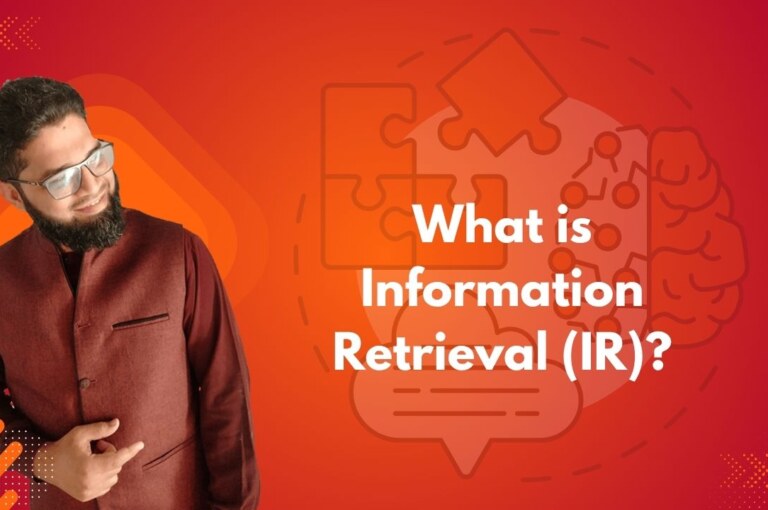In formal terms, Information Retrieval (IR) is the process of locating, organizing, and ranking information objects — such as documents, images, or videos — according to their relevance to a user’s search query.
Unlike databases, which fetch exact matches, IR systems work in probabilistic and semantic spaces, assessing how closely a document’s meaning aligns with the query’s intent.
This distinction places IR at the heart of semantic similarity, query optimization, and topical authority — three cornerstones of intelligent search and content systems.
Historical Evolution — From Boolean to Neural Retrieval
Early IR systems (1950s–1990s) relied on Boolean models, matching exact terms and operators like AND/OR.
By the 2000s, vector space models and probabilistic approaches like BM25 improved ranking by scoring documents based on term frequency × inverse document frequency (TF-IDF) relevance weights.
The last decade has brought a seismic leap with dense retrieval models and transformer-based embeddings. Frameworks like BERT, DPR, and ColBERT convert text into high-dimensional vectors, enabling retrieval by semantic closeness rather than literal overlap.
Today’s neural IR aligns closely with contextual embeddings, passage ranking, and retrieval-augmented generation (RAG) pipelines — uniting retrieval and reasoning within large-language-model architectures.
How Information Retrieval Systems Work?
Every IR pipeline follows a structured semantic information flow:
Crawling & Indexing – content is tokenized, normalized, and stored in an inverted index.
Query Representation – user input is transformed through query rewriting, expansion, or augmentation to capture intent.
Retrieval & Ranking – candidate documents are scored using hybrid algorithms combining lexical precision (BM25) and semantic distance (embedding similarity).
Re-ranking & Evaluation – top results are fine-tuned by learning-to-rank (LTR) models that incorporate behavioral, contextual, and click model feedback.
These components mirror how search engines balance speed, scalability, and contextual depth — transforming chaotic data into coherent answers.
Relevance — The Heartbeat of IR
The effectiveness of IR hinges on one measure: Relevance — how closely results meet a user’s intent.
However, relevance is multidimensional:
| Type | Definition | Example |
|---|---|---|
| Topical Relevance | Content aligns with query topic. | “Benefits of Meditation” → lists of health benefits |
| Situational Relevance | Tailored to user’s context or expertise. | Beginner vs expert finance guides |
| Cognitive Relevance | Supports understanding or learning. | Interactive tutorial vs research paper |
| Perceived Relevance | Driven by snippets & titles. | Attractive meta titles increase CTR |
Algorithms approximate objective relevance through mathematical scoring, while subjective relevance emerges from user feedback.
This duality connects semantic relevance with user behavior signals such as dwell time and click-through rate (CTR), both crucial in continuous learning systems.
Measuring and Evaluating Retrieval Performance
IR evaluation blends quantitative metrics and behavioral analysis:
Precision – proportion of retrieved documents that are relevant.
Recall – proportion of all relevant documents that were retrieved.
F1 Score – harmonic mean of precision and recall.
Mean Average Precision (MAP) – averages ranking quality per query.
nDCG (Normalized Discounted Cumulative Gain) – rewards correctly ordered results.
MRR (Mean Reciprocal Rank) – measures how quickly a relevant result appears.
These measures, detailed in Evaluation Metrics for IR, quantify a system’s retrieval efficiency and ranking accuracy.
Modern systems also analyze behavioral metrics — scroll depth, dwell time, and query reformulation rate — to train reinforcement loops that continually refine the update score of dynamic search results.
Modern Advances and Emerging Trends in IR
Information Retrieval has evolved from static ranking to dynamic, learning-driven retrieval powered by neural embeddings and vector databases.
Today’s systems combine dense and sparse models to achieve both precision and contextual depth — a practice known as hybrid retrieval.
Neural Retrieval: Transformers like BERT, DPR, and ColBERT create contextual representations that capture the meaning behind user queries.
Vector Databases: Platforms that store and index embeddings to enable semantic indexing and similarity-based retrieval, as explored in Vector Databases & Semantic Indexing.
Retrieval-Augmented Generation (RAG): A new paradigm where large language models fetch factual context from IR layers before generating responses — bridging information retrieval and natural language generation.
Learning-to-Rank (LTR) and click feedback loops continuously optimize ranking based on user interaction, enhancing both query rewriting accuracy and semantic relevance.
Together, these techniques make IR not just faster but context-aware, forming the basis for AI assistants, search copilots, and knowledge-centric discovery engines.
Real-World Applications of Information Retrieval
Modern IR drives every digital interface where users seek information.
Search Engines: Google and Bing use IR to crawl, index, and rank billions of web pages based on semantic similarity and entity connections within the Knowledge Graph.
E-Commerce: Marketplaces like Amazon rely on query augmentation and entity salience to match products with user intent and past behavior.
Academic and Enterprise Search: Systems such as PubMed or enterprise intranets use ontology alignment and schema mapping to unify terminology across disciplines.
Voice Assistants: Siri and Alexa integrate contextual hierarchy and semantic role labeling to maintain continuity in conversation.
Local Search & Recommendation: IR intersects with Local SEO by retrieving geographically contextual information like businesses, maps, and reviews.
Each use case extends IR beyond keyword retrieval — into intent, trust, and entity reasoning.
Challenges in Building Accurate and Trustworthy IR Systems
Despite enormous progress, IR faces persistent challenges in 2025:
Query Ambiguity & Polysemy: A single query such as “Apple” could denote a brand, a fruit, or a location. Advanced systems apply contextual disambiguation using entity disambiguation techniques.
Data Bias and Fairness: Neural models may reinforce social or topical bias present in training data, affecting ranking integrity and user trust.
Evolving Intent: User intent can shift during a session; hence multi-turn retrieval and session-based models are essential to preserve context flow.
Scalability & Latency: Balancing semantic depth with millisecond response time requires efficient index partitioning and distributed vector search.
Adversarial Manipulation: Spam, link schemes, or misinformation attack IR pipelines, demanding countermeasures grounded in knowledge-based trust and update-score signals.
A future-proof IR ecosystem must thus integrate transparency, explainability, and trustworthiness into every retrieval layer.
Implications for Semantic SEO and Content Strategy
For SEO professionals, understanding IR is not optional — it’s foundational.
Modern search engines interpret queries and pages as semantic entities within a topical map rather than isolated keywords.
Structuring pages with schema.org markup turns them into machine-readable entities, reinforcing topical authority.
Maintaining contextual flow between clusters helps IR systems trace thematic continuity and improve ranking confidence.
Leveraging semantic content networks ensures that your content graph mirrors how search engines organize knowledge.
Regular updates supported by a healthy update score and historical data signals keep your pages within IR freshness thresholds.
In essence, aligning with IR mechanics means optimizing not just for algorithms but for meaning itself — helping both users and machines navigate your brand’s knowledge ecosystem.
Future Outlook of Information Retrieval
By 2025 and beyond, IR is merging with generative AI into what many call Retrieval-Reasoning Systems.
LLMs like GPT-5, PaLM 3, and LLaMA 3 integrate retrieval-augmented memory, letting them “look up before they speak.”
Future IR will emphasize:
Personalized and contextual retrieval, adapting results in real-time to each user’s journey.
Multimodal IR, combining text, image, video, and sensor data for richer semantic understanding.
Ethical and transparent retrieval, ensuring users can trace why a particular result appeared.
Proactive discovery, where systems anticipate intent before a query is issued.
For content creators and strategists, this future demands structured knowledge, entity-linked content, and a long-term investment in semantic authority — because IR is no longer about searching; it’s about understanding.
Frequently Asked Questions (FAQs)
What are the main types of Information Retrieval models?
They include Boolean, Vector Space, Probabilistic (BM25), and Neural/Dense retrieval. Hybrid systems combine dense vs. sparse retrieval to balance lexical precision and semantic depth.
How does IR differ from Data Retrieval?
Data retrieval fetches exact matches from structured databases; IR interprets unstructured data through semantic similarity and relevance ranking.
What role do evaluation metrics play in IR?
Metrics like precision, recall, MAP, and nDCG measure retrieval quality and are detailed in Evaluation Metrics for IR.
How does IR connect to Semantic SEO?
IR principles define how search engines assess relevance, contextuality, and trust — the same pillars behind semantic content optimization and E-E-A-T signals.
Final Thoughts on Information Retrieval (IR)
Information Retrieval has transcended its academic roots to become the semantic engine of the modern web.
It fuels discovery, reasoning, and trust across every digital platform — from search engines and recommendation systems to conversational AI.
In 2025, success in IR and SEO alike depends on how effectively we connect entities, meaning, and intent.
As data grows, the challenge isn’t retrieving more information — it’s retrieving the right information, contextually aligned with human purpose and machine understanding.
Want to Go Deeper into SEO?
Explore more from my SEO knowledge base:
▪️ SEO & Content Marketing Hub — Learn how content builds authority and visibility
▪️ Search Engine Semantics Hub — A resource on entities, meaning, and search intent
▪️ Join My SEO Academy — Step-by-step guidance for beginners to advanced learners
Whether you’re learning, growing, or scaling, you’ll find everything you need to build real SEO skills.
Feeling stuck with your SEO strategy?
If you’re unclear on next steps, I’m offering a free one-on-one audit session to help and let’s get you moving forward.
Download My Local SEO Books Now!
Table of Contents
Toggle






Leave a comment